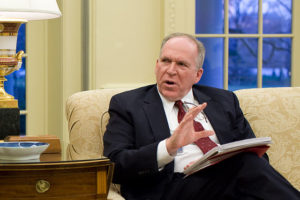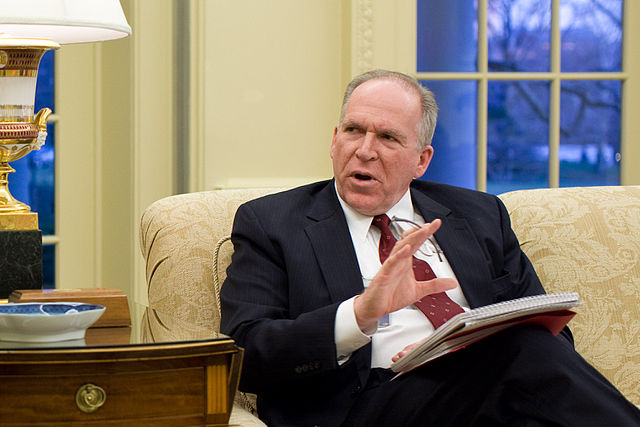
On August 15 President Trump’s press secretary Sarah Sanders announced that he was revoking the security clearance of former CIA director John Brennan, along with the clearances of 9 other individuals. The move was an unprecedented demonstration of the president’s power to decide who has or doesn’t have security clearance.
“I have a unique constitutional responsibility to protect the nation’s classified information, including by controlling access to it. Today, in fulfilling that responsibility, I have decided to revoke the security clearance of John Brennan, former director of the Central Intelligence Agency,” read Sanders. “Mr. Brennan’s lying and recent conduct characterized by increasingly frenzied commentary is wholly inconsistent with access to the nation’s most closely held secrets.”
Brennan responded at the time with pointed criticism of the move.
“This action is part of a broader effort by Mr. Trump to suppress freedom of speech & punish critics. It should gravely worry all Americans, including intelligence professionals, about the cost of speaking out. My principles are worth far more than clearances. I will not relent,” Brennan said in a tweet shortly afterwards.
Now, almost two weeks later, Brennan has not heard anything more about the status of his security clearance- not from the White House; the CIA; or any other official body or person from the administration.
“Whether or not my clearances have been stripped, I’m still uncertain about,” Brennan said in an interview Tuesday with MSNBC.
Several experts are saying that it is not at all clear if Brennan’s clearance has been nullified.
“In any other administration, the words of the president are presumed to have intrinsic actionable meaning — that is, they are themselves policy and agencies will respond to them as such,” said Benjamin Wittes, a Brookings Institution senior fellow. “With this president, there is an almost total disconnect between what the president says in public and the actions of the executive branch.”
“Therefore, when the president says he is doing something, you have to ask a question that you would never ask with any other president, which is: Is he doing that thing, or is he just saying that he’s doing that thing?” Wittes added.
The President’s move to revoke Brennan’s clearance conflicts with a 1995 executive order illustrating the detailed method that must be used to decide who can or can’t have access to secret information. The order says that the government has to show “as comprehensive and detailed a written explanation” of the reason the person does not meet the requirements to have access to the country’s most important classified information. In addition, those whose clearance has been revoked can appeal the decision, in person and in writing.
However, the president can choose to ignore such an executive order, and just like with the power to pardon, can revoke security clearances without any over-site or accountability.



